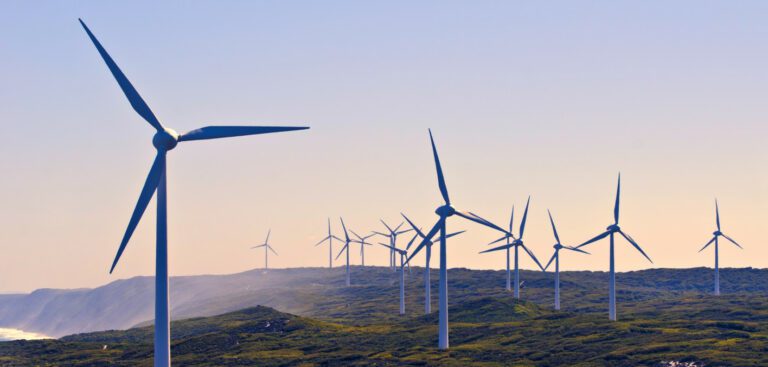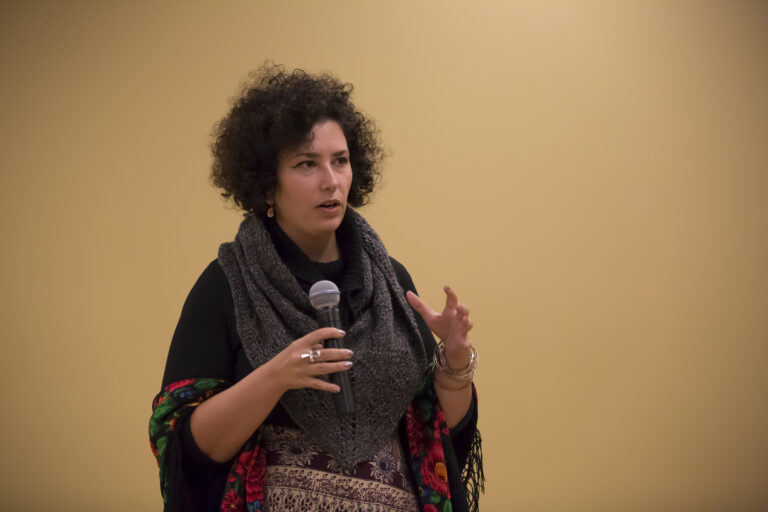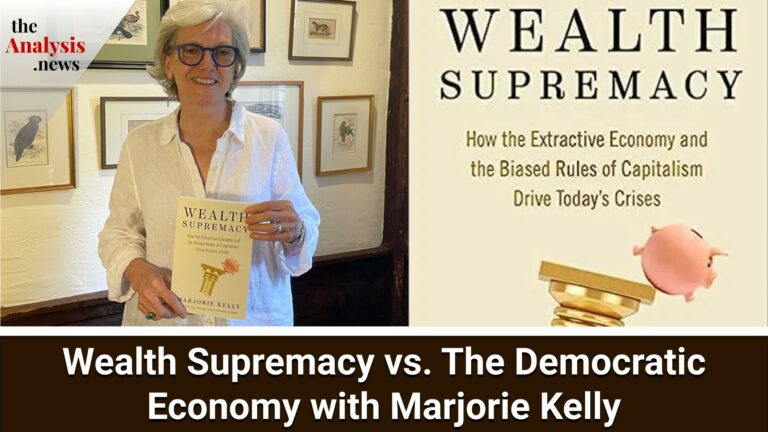Podcast: Play in new window | Download | Embed
Subscribe Apple Podcasts | Spotify | Android | iHeartRadio | Blubrry | Email | TuneIn | Deezer | RSS
On Reality Asserts Itself, Ms. Foroohar and host Paul Jay discuss the merging of finance and big tech and the threat AI poses to working people and the economy; they also discuss the potential of AI in addressing the climate crisis and making a more rational and equal society possible – with host Paul Jay. This is an episode of Reality Asserts Itself, produced May 9, 2018.
STORY TRANSCRIPT
PAUL JAY: Welcome to The Real News Network. I’m in New York City and this is Paul Jay and Reality Asserts Itself.
Rana Foroohar is an associate editor and global business columnist for The Financial Times. She’s also CNN’s global economic analyst and she joins us in the studio. Thanks for joining us Rana.
RANA FOROOHAR: Thanks for having me.
PAUL JAY: So we left off with wealthy people heading off to New Zealand and finding safety. And I actually think this is more real than some whims of some people. I think after the Stern Report, Stern was the, you know, the former head of the, chief economist for the World Bank. He goes and does a study for Tony Blair on what the possible effects of climate change will be, and it’s apocalyptic, his predictions of what are going to happen. It was taken pretty seriously. There’s a critique of the report in various ways. But the underlying science has become clearer and clearer we could be crossing the two degree threshold as early as 2050, according to seven of the leading climate scientists of the world, including Sir Roger Watson. And they predicted that prior to the election of Trump. So get rid of all, even if it was modest climate legislation in the United States with Trump, are we looking at 2040? We’re talking a matter of a few years, and we could be past the critical tipping point.
I think that the thinking smarter elites, including those in the Pentagon who have looked at this, and call it a great national security threat—
RANA FOROOHAR: Indeed.
PAUL JAY: I think that, I think they know it’s coming. And I even think a lot of the people that claim to be deniers know it’s coming. It’s just politically expedient if you’re in the fossil fuels sector, you know, to take that kind of position, the same way you said there was no, cigarettes didn’t cause cancer, they’re going to say there’s no climate change. Well, they knew.
RANA FOROOHAR: Right.
PAUL JAY: I think this heading for the hills is for real. And when you start looking for, bring artificial intelligence into that, where you know, 10, 20, 30 years, I don’t know what the timeframe is, but robots could be doing most of what working people are doing.
RANA FOROOHAR: Yeah.
PAUL JAY: Then why do the wealthy need working people anymore?
RANA FOROOHAR: You know, it’s a great question. AI is something that I’m looking a lot at. It’s where I’m actually throwing most of my reporting energies at the moment. In some ways I think that the crisis of the big FANG companies, Facebook, Apple, Netflix, Google, that we’ve seen in the last few months around election manipulating is in fact the tip of the iceberg of a much larger crisis in the digital economy, where you do have AI moving forward. I mean, you know, just recently Google Alpha Go was able to learn the entire history of human chess in 15, you know, 1500 years of human chess history in a couple of hours, and then start besting human players. And in fact, after a certain period of playing with grandmasters, it decided to stop playing with the humans and start playing only machine against machine.
PAUL JAY: Getting bored.
RANA FOROOHAR: It was getting bored, and learning faster the other way. So the AI stuff is real. And if you think about, you know, we’ve been talking a lot about capital and the power of capital. But if you think about what powers the digital economy, data. Data is the new oil, right. That’s a, that’s a phrase that I’ve used, and it’sbecoming a catchphrase. If you think about what the two paradigms are now for who’s going to rule that economy, you’ve got on the one hand laissez-faire U.S., where these large tech companies are relatively unfettered economically. They have a great monopoly power. Finance and tech are actually neck and neck right now in terms of GDP. And they’re merging, in fact. Fintech, you know.
PAUL JAY: There’s no wall between them, really.
RANA FOROOHAR: Right. That’s that’s exactly right. I mean, you know, and Apple may become a bank someday. Who knows? You know, so, so this kind of giant behemoth here, allowed to do whatever it wants to small and mid-sized companies, that’s the U.S. model. There may be some data privacy regulation in the U.S.
In China you’ve got, they’ve got their own tech giants. Ali Baba, Baidu, Tencent. They also have unlimited ability to collect data, because it’s an authoritarian state. So it’s, you know, there’s surveillance everywhere. There’s entire smart cities which, by the way, are wired up by U.S. firms, often, that monitor every aspect of what’s going on people. And that data is the raw material that fuels AI.
Now, AI is already being used in ways that we can’t even begin to imagine. I’ll give you an example. I was at the World Economic Forum in Davos recently, and I spoke to an insurance executive. And insurance is kind of a, seems like a boring old-line business. He was out acquiring Hong Kong data firms, all kinds of AI technology, in order to eventually, the thinking was, put sensors in homes and in cars to monitor, say, how you’re taking care of your pipes, or whether or not your 16 year old is smoking weed in his bedroom, or how fast you’re going in your car and how quickly you’re braking. And the sensors would be relaying all that information in real time, and then they would write you, if you are deserving, a personalized insurance policy.
Now, think about what that does to the, you talk about collective versus individual. The entire insurance business model has been based on collective aggregation of risk. Suddenly, AI and data and the digital economy allows you to write individualized, personalized policies just for you, just for me. Now, that’s great for some people, but it also might have you have an entire class of people that would be uninsurable now. Well. Who’s going to insure them? Well, the state, probably. With what money? We’ve already talked about where the debt is. So it just starts to snowball, a lot of these problems that we’ve already been discussing.
PAUL JAY: It is so nuts, because all the datamining is all based on being, you know, to sell stuff to people.
RANA FOROOHAR: That’s right.
PAUL JAY: But they’re going to, the same technology is going to eliminate everyone’s jobs.
RANA FOROOHAR: Well, it’s so funny—
PAUL JAY: So instead of all of us benefiting from it and saying OK, robot, go do the work. We’ll go make a new, we’re going to write a play, they’re going to, try to be selling stuff to people who don’t have work anymore. Like, it’s completely crazy.
RANA FOROOHAR: It’s completely, I mean, it’s reminding me, Howard Schultz, the head of Starbucks, who’s I would say one of the more enlightened business people that I’ve come across, says he thinks that we’re heading to a world of latte makers and latte buyers, and you better hope that you have more buyers, because otherwise the whole thing falls apart.
And so I think that what’s interesting is people that are really on the forefront of retail, I think that they sense that this problem is already starting to happen.
PAUL JAY: Truck, I mean, truck drivers are almost gone. The self driving cars , you go through the economy. The joke’s going to be AI’s going to be way better at running hedge funds.
RANA FOROOHAR: Oh yeah. They’ll be the first ones—
PAUL JAY: Than any people. They don’t need any people there.
RANA FOROOHAR: Well, if you look at, you know, who works in most hedge funds, most of them are run by a handful of people.
PAUL JAY: Mathematicians and physicists.
RANA FOROOHAR: And there’s, you know, five of them running billions and billions of dollars. Yeah.
PAUL JAY: I think A.I. has another potential. And it’s already shown itself. Is that I think now there actually is the potential for a planned economy. I think the idea of having a planned economy in the 1930s was kind of nuts. Yeah I read somewhere that when they try to calculate a bonus for a worker who worked better on an assembly line than someone else they wound up needing 2100 signatures. It took months of math, mathematicians trying to figure it. We already have brilliant planned economies. Amazon, FedEx, Walmart. Like, they’re internally brilliant. And the more AI develops, the more brilliant they’re going to get. The problem is they’re, they’re owned by people who would rather stock buybacks—
RANA FOROOHAR: That’s interesting.
PAUL JAY: Than do something productive for the society.
RANA FOROOHAR: You know, Paul, you might have a revolutionary idea there. No, I, it’s a very interesting point.
You know, I’ve been talking a lot to the French about this topic. There’s a lot of action right now in Europe, and I would encourage your viewers to look at Europe in the next couple of years, and how Europe starts to put a regulatory framework and a policy framework around the digital economy, because I think Europeans are looking and saying, OK, we don’t want the authoritarian surveillance state of China. But we also don’t agree with the kind of anything goes values, corporate capitalism of the U.S. What are our values? And how, and how can we preserve an economy that can grow and prosper?
And one thing I’m hearing a lot about from the French, for example, who have great data scientists who have a very rich startup ecosystem, but have been crushed often by the Googles and the Facebooks. I’m hearing talk about data trusts where the, there could be some public oversight of personal data in such a way that corporations that want to access that would then be monitored, they would be supervised. And that some of that wealth that lives in IP, because almost all wealth lives in data and IP now, that can be monetized not just by the state but by individuals. And there’s, you know, there’s the possibility, I don’t want to be too sci-fi here. I’m no technologist. But you know, things like block chain, I mean, they don’t necessarily have to be used for speculative currencies like Bitcoin. They could be used to create, as they are in India, digital identities that could allow individuals to potentially monetize your data.
PAUL JAY: Well, I think that’s actually one, one of the most important points of your book is the way capitalism that in its earlier days was completely revolutionary and innovative in every sphere, science and so on, that finance is the obstruction to innovation and creativity. And nothing better than the digital revolution. What is possible now is being so held back. And it’s not just by the financialization and the way stuff is owned in this sector, because they are all totally in bed with financialization. But, but I guess where I’d go with it is I don’t see how it can be otherwise without a much more major role to a public sector because it’s—
RANA FOROOHAR: Oh I think so.
PAUL JAY: Because otherwise, how do you solve it?
RANA FOROOHAR: And that’s why I would agree with you, and I think that that’s why you’re going to see Europe taking a lead. Because I don’t actually think, I think, OK, A) We’re not going to see any regulation around either finance or big tech unless the Democrats take Congress in the midterms. Even if the Democrats were to take Congress, you still have an existential split within the party between the more financialized, I mean, Chuck Schumer saying he wants self-regulation of big tech, and the more Elizabeth Warren, Bernie Sanders wing of the party.
PAUL JAY: And there’s a war going on in the party right now.
RANA FOROOHAR: And there’s a war going on about this, and it’s unclear who’s going to win.
PAUL JAY: Let’s end with another quote from Rana’s book “Makers and Takers: How Wall Street destroyed Main Street:”
“Even if we don’t understand the particulars of Wall Street, we all know on some gut level that the current system isn’t working. How could it be when 1 percent of the population takes most of the world’s wealth, and a single industry that creates only 4 percent of jobs takes nearly 25 percent of our country’s corporate profits?
I think that we need to develop a new and more accurate story about the role finance plays in our economy … Doing so will require a detailed analysis of the facts by people who don’t have vested interests and aren’t captured by the system.”
PAUL JAY: I hope we do this again.
RANA FOROOHAR: OK. Thank you.
PAUL JAY: And thanks very much for joining us. And thank you for joining us on Reality Asserts Itself on the Real News Network.






